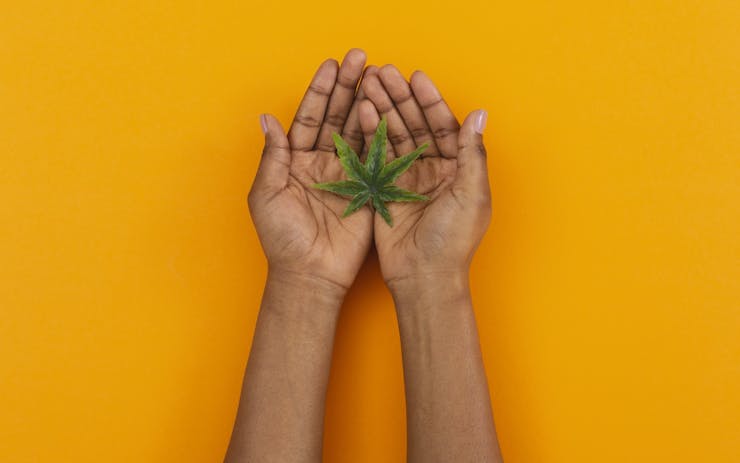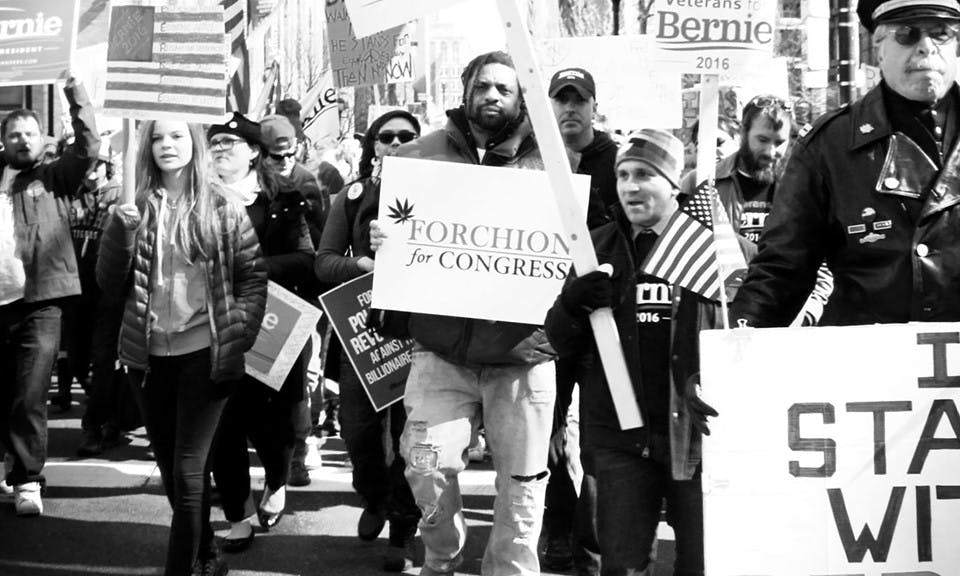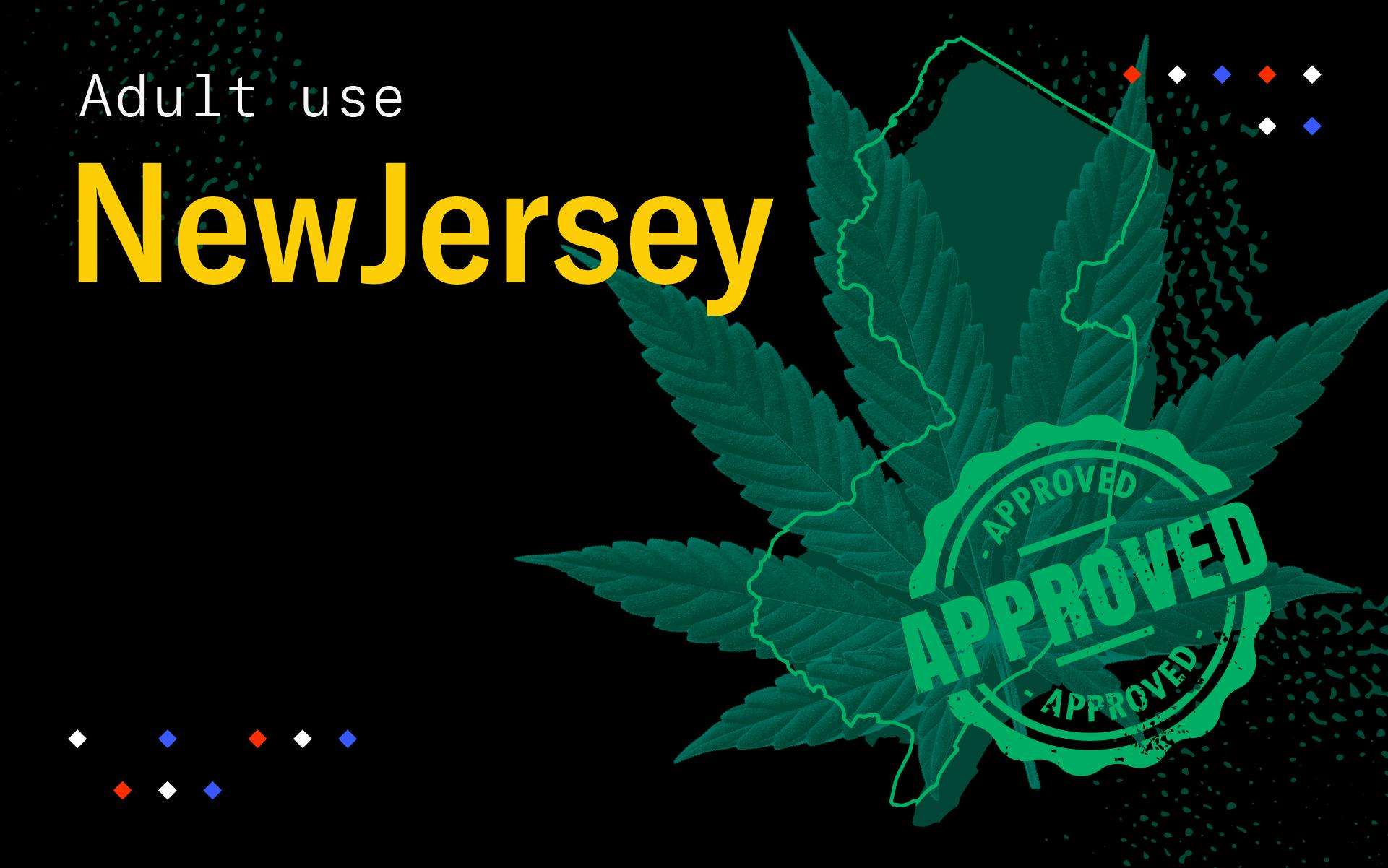When New Jersey Gov. Phil Murphy was campaigning for that office back in 2017, he made enacting cannabis legalization in the Garden State a cornerstone of his stump speech. In fact, he repeatedly promised to deliver this historic change during his first 100 days in office.
Gov. Phil Murphy promised to legalize. New Jersey voters demanded it. Now Murphy and the legislature are fighting over the details.
“We have to talk about the legalization of marijuana through a social justice frame,” Murphy said in a televised debate.
“New Jersey has the largest white to non-white gap of persons incarcerated in America. We need comprehensive criminal justice reform. [Legalization] is not the only thing we can or should do, but lower end drug arrests are the biggest contributor to that racial disparity. So that’s the first reason we want to legalize marijuana. Not because we can make money off it, which is the last reason.”
Question 1 passed with 67% approval
Phil Murphy won that election in a landslide, 56% to 42%. In his inauguration speech he doubled down, promising to end cannabis arrests in his first 100 days. But nearly three years later, those arrests continue in New Jersey—yes, even after the state’s recent resounding vote to legalize.
On November 3rd, on the same ballot that decided the presidency for Joe Biden, voters in NJ approved Question 1, Marijuana Legalization Amendment with 67% in favor. But what few realized is that their vote amended the state constitution, but didn’t enact any actual change in existing law.
To do that, New Jersey’s lawmakers must still pass two pieces of enabling legislation—one to end the criminalization of cannabis for adults, the other to create a regulatory system for commercial cultivation, distribution and sales.
Some hoped this would happen quickly. It hasn’t.
The devil’s in the details
Following three years of failed attempts to move legalization through the statehouse, New Jersey state Sen. Nicholas Scutari tried to seize the post-election momentum by quickly introducing a cannabis industry bill and bringing it up for a nearly immediate vote.
SB-21, the New Jersey Cannabis Regulatory, Enforcement Assistance, and Marketplace Modernization Act, passed easily through committees in the state Senate and the state Assembly. But when details of the bill became widely known, reform activists and more progressive members of the legislature promptly pumped the brakes.
Social justice, tax money, and other issues
Racial justice advocates objected to the bill’s allocation of only 15% of cannabis business licenses to minority applicants. They also opposed Scutari’s plan for the cannabis tax revenue, which would fund local police departments instead of supporting low-income neighborhoods disproportionately targeted and harmed by the War on Drugs.
Equity advocates pushed for language ensuring that people with past convictions for cannabis will not be excluded from the legal industry, and for additional funding to expunge criminal records related to cannabis.
Ban homegrow? Hold on…
At the same time, advocates for patients and consumers objected to Scutari’s proposed ban on home cultivation, which is allowed in 12 of the 14 other states with recreational cannabis laws.
Shop highly rated dispensaries near you
Showing you dispensaries nearFor the time being, amid all these objections, the bill has been held up in negotiations.
A new version emerges, but it’s unclear
Those negotiations, according to reporting by NJ Cannabis Insider, have resulted in an amended plan that would, among other things, offer additional job protection for workers who use cannabis, and impose a tax on cultivators that could one day bring in $450 million in annual revenue, with that money “earmarked for programs in minority communities disproportionately affected by the drug war.”
No word has emerged on any potential changes to equity licensing, eliminating funding to police, or any provisions to support home grow, though all three issues remain under discussion.
A vote on the updated bill is tentatively scheduled for Monday.
Jamming psychedelic decrim into the package
Meanwhile, separate enabling legislation to decriminalize possession of up to six ounces of cannabis, and first offenses for low-level distribution, hit a very different kind of snag.
Despite passing 29-4 in the state Senate, the decriminalization bill failed to muster a majority in the Assembly, and so also ended up getting tabled for future consideration.
The sticking point was an amendment attached to the cannabis decriminalization bill that would lower penalties for psilocybin (including when found in psychedelic mushrooms).
Under that amendment, the penalty for possession of an ounce or less would become a disorderly-person offense, while the penalty for possession of more than an ounce would be lowered from three-to-five years in prison to just six months in jail.
Some lawmakers objected on the grounds that psilocybin was a last-minute addition to a long-delayed cannabis bill, particularly since voters had not weighed in on psilocybin.
Still some holdouts after the Nov. 3 vote
Other lawmakers, meanwhile, remain opposed to the very idea of legalization, despite the overwhelming opinion voters expressed on Nov. 3.
Republican state Sen. Gerald Cardinale, for instance, objected to a provision in the bill preventing police from stopping people for questioning simply because they smell cannabis. Which, remember, is now going to be legal.
“This bill doesn’t defund the police,” Cardinale said, “but it does de-fang the police.”
Fangs, of course, being a physical feature exclusive to predators.
A hangup over cops and the ‘smell of cannabis’
Allowing police to use “the smell of cannabis” as a pretext to instigate investigations effectively gives every cop carte blanche to search and detain anyone they wish. This is a policy that has consistently led to the disproportionate targeting of minorities, the poor and other marginalized groups. All of whom will remain subject to arrest in New Jersey for cannabis until the decriminalization legislation is signed into law.
State Sen. Teresa Ruiz, D-Essex, who sponsored the decrim bill, says that’s all the more reason to pass it now and address its shortcomings later.
“I have to think about the person who is on the street corner who could get detained,” Ruiz said in testimony to the state legislature. “And yet, two blocks down, where there will be a legal storefront, that individual could push out pounds of [marijuana] once we determine what the process looks like.”
Where does NJ Weedman fit in?
Over the last twenty years, nobody’s repped New Jersey cannabis harder than Ed Forchion, who is far better known by his nom de pot NJ Weedman.
A provocative political demonstrator and a repeat cannabis offender, Forchion has earned a kind of outlaw notoriety and even grudging respect from the authorities by staging public pranks, fighting in court to declare cannabis prohibition unconstitutional, and running for various public offices. He’s also spent time in prison for cannabis on multiple occasions.
“Taxation is better than incarceration,” Forchion recently told the Star Ledger newspaper in a post-legalization profile. “The public wants to buy [cannabis] from the guy down the street they’ve been buying it from. And they want that dealer to be legalized.”
Very much a believer in propaganda by the deed, Forchion currently operates NJ Weedman’s Joint, a restaurant/unlicensed cannabis store in Trenton that’s located directly across from City Hall, and less than a mile from the NJ State House, where cannabis legalization is right now the hottest topic of debate.
Stop by NJ Weedman’s Joint for “Snoop’s Ultimate Breakfast” or a nice “Banana Spliff” and then stay for the wide selection of cannabis that’s reportedly sold in the back room.
But wait. How can he do such a thing? Two words: civil disobedience.
‘Can’t find a jury to convict me’
Forchion recently told the Philadelphia Inquirer that the police don’t come and arrest him simply because “they can’t find 12 people who’d be willing to convict me.”
But despite his decades-long struggle to liberate cannabis, Forchion doubts he’ll ever have a chance to compete in the legal industry.
“Not only am I a convicted felon,” he told the Inquirer, “I don’t have $2 million to pony up for a permit… It’s only going to be for rich white guys. People like me, we won the drug war. But it’s the Republicans who fought and lost, the John Boehners of the world, who now sit on the corporate boards of the big weed companies.”
Former Speaker of the House Boehner long opposed legalization while serving in Washington, D.C., but now he serves on the board of Acreage Holdings, a multi-state cannabis company that’s already a major player in New Jersey’s small medical cannabis program, with its own cultivation facility and two dispensaries.
No doubt Mr. Boehner’s interests are well represented amid all the lobbying in Trenton.
Weedman’s partner asks governor for a license
Debi Madaio, meanwhile, the co-owner of NJ Weedman’s Joint, is a registered nurse, medical marijuana patient, activist and mother to a special needs son. She recently launched a change.org petition asking Gov. Phil Murphy to grant the business a cannabis license.
“My partner and I have been early innovators here in New Jersey. Yet we have been publicly vilified, terrorized and even raided for offering a compassionate refuge for pot lovers!” Madaio says. “Now that cannabis is finally being legalized, businesses like mine are in desperate danger of being overlooked by faulty legislation and overrun by political and corporate figures. So far, New Jersey does not have a tangible plan in place for small entrepreneurs like me and others. Governor Phil Murphy is promising inclusion for the underserved. I want to make sure he fulfills his promise.”
But as lawmakers wrangle over the details of New Jersey’s legal cannabis future, attempting to reach a consensus among many competing interests, they would do well to also keep in mind the many people like NJ Weedman, for whom cannabis is both a way to make a living and a way of life.






